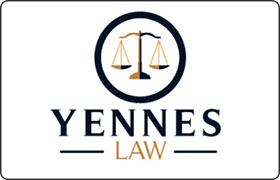Apollo Beach Real Estate Lawyer, Florida
Sponsored Law Firm
-
 x
x

Click For More Info:
-
Law Office of Adham Yennes
27709 FL-56 Unit 103 Wesley Chapel, FL 33543» view mapBankruptcy & Debt Law Proudly Serving Hillsborough County
You need an attorney with bankruptcy knowledge who will vigorously protect your rights and interests.
800-873-3840
Damon Christopher Glisson
Commercial Real Estate, Federal Appellate Practice, Family Law, Elder Law
Status: In Good Standing
Donald B Linsky
Commercial Real Estate, International Tax, Estate Planning, Elder Law
Status: In Good Standing Licensed: 46 Years
Jessica Linsky Liszt
Commercial Real Estate, Real Estate, Elder Law, Civil & Human Rights
Status: In Good Standing Licensed: 17 Years
Michael Lee Peterson
Commercial Real Estate, Land Use & Zoning, Real Estate, Estate Planning
Status: In Good Standing Licensed: 34 Years
Van Alan Cates
Construction, Real Estate, Environmental Law Other, Business & Trade
Status: In Good Standing Licensed: 40 Years
Robert Allan Collins
Other, Commercial Real Estate, Federal Appellate Practice, Estate Planning
Status: In Good Standing Licensed: 31 Years
Terrence F Pyle
Power of Attorney, Commercial Real Estate, Trusts, Estate Planning
Status: In Good Standing Licensed: 51 Years
 Adham Yennes Wesley Chapel, FL
Adham Yennes Wesley Chapel, FL AboutLaw Office of Adham Yennes
AboutLaw Office of Adham Yennes Practice AreasExpertise
Practice AreasExpertise
